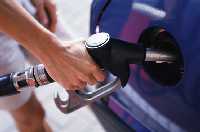|
March 13, 2002
The Senate voted 62-38 to adopt an amendment that will direct the Transportation Department to set fuel economy rules without mandating specific targets for the auto industry. Specifically, the proposal stipulates that the National Highway Traffic Safety Administration (NHTSA) will issue new fuel economy rules within two years. Few inside the Beltway expect the agency to bring about much change; until quite recently, the agency was forbidden by Congress to so much as look at the issue. Adding insult to injury, the Senate also voted 56-44 to exempt pickup trucks from any future increase in mileage standards. The Sierra Club expressed profound disappointment after the session. In the words of executive director, Carl Pope, "The Senate is handing our nation's energy security over to an auto industry that waged a campaign of fear and falsehoods." Falsehoods and scare tactics were indeed common currency in the debate. Senator Christopher Bond (R-MO), one of the cosponsors of the proposal claimed that the only way to meet the higher fuel standards would be "to put everybody into glorified golf carts." Minority Leader Trent Lott (R-MS) echoed the claim, pointing to a photo of tiny subcompact and saying, "I don’t want every American to have to drive this car." Echoing rhetoric from the White House contending that fuel-efficient cars are inevitably smaller and less safe, Senator Barbara Mikulski (D-MD) expressed concerns for legions so-called of "soccer moms." "American women love their SUVs and minivans … because of their safety," she said. The various claims fly in the face of research conducted by the National Academy of Sciences (NAS). A report released by the NAS’s National Research Council last year concluded that major improvements in fuel efficiency were feasible without reductions in car size, weight or safety. Senator John Kerry (D-MA), who led the fight for higher fuel economy standards called the adopted measure an "artful dodge." "We are going backward," he added. Indeed, we have been for some time. No progress has been made in the average fuel efficiency of American vehicles since 1988, when average fuel economy peaked at 26 mpg. In 2000, due mostly to the increasing popularity of SUVs, the average mileage for all U.S. vehicles was just 24 mpg, the lowest it has been since 1979. The disappointing vote comes after a House energy bill that, likewise, will do little to increase fuel economy standards in America. "The Senate ignored a chance to make real progress in reducing our oil dependence, saving consumers money, and cutting global warming pollution," said Carl Pope of today’s outcome. "The American people demand better from our Senators than this irresponsible vote to elevate the auto industry's short-term interests over Americans' safety and energy security." The Sierra Club is now urging the Senate to protect the Arctic National Wildlife Refuge and increase use of electricity from non-hydro renewable sources 20 percent by 2020.
Up to Top |
 Just days after a promising
bipartisan agreement was reached that would have raised Corporate
Average Fuel Economy (CAFE) standards for cars and trucks nearly 50
percent, the Senate has chosen instead to do nothing -– or nearly
so.
Just days after a promising
bipartisan agreement was reached that would have raised Corporate
Average Fuel Economy (CAFE) standards for cars and trucks nearly 50
percent, the Senate has chosen instead to do nothing -– or nearly
so.